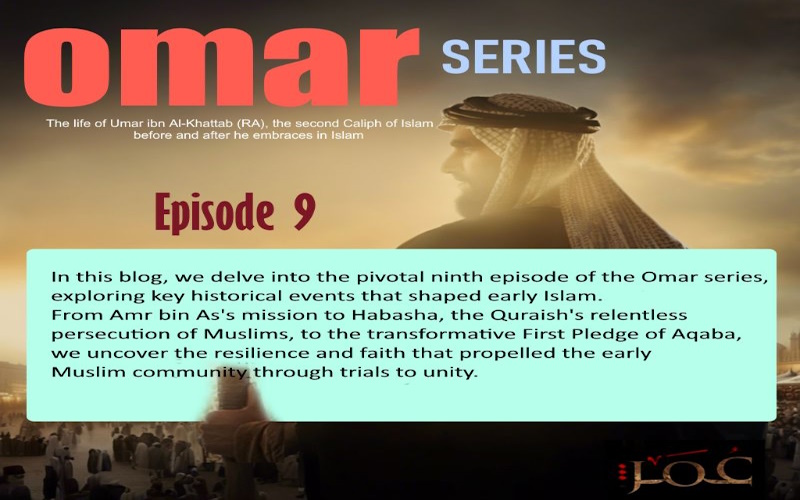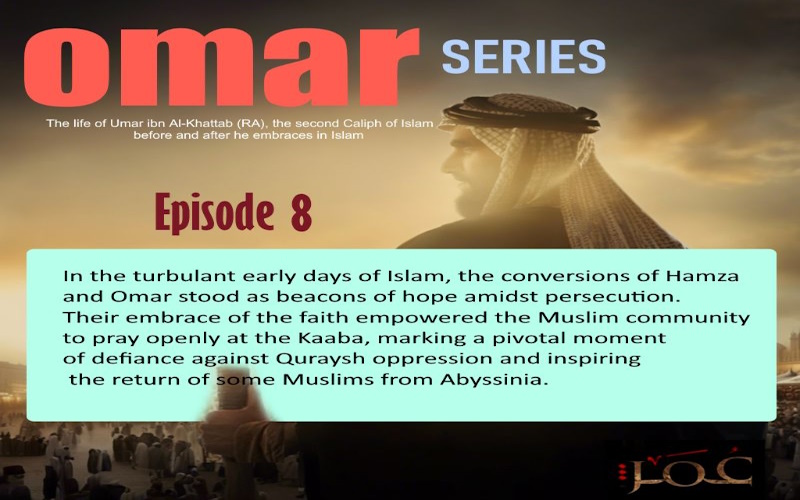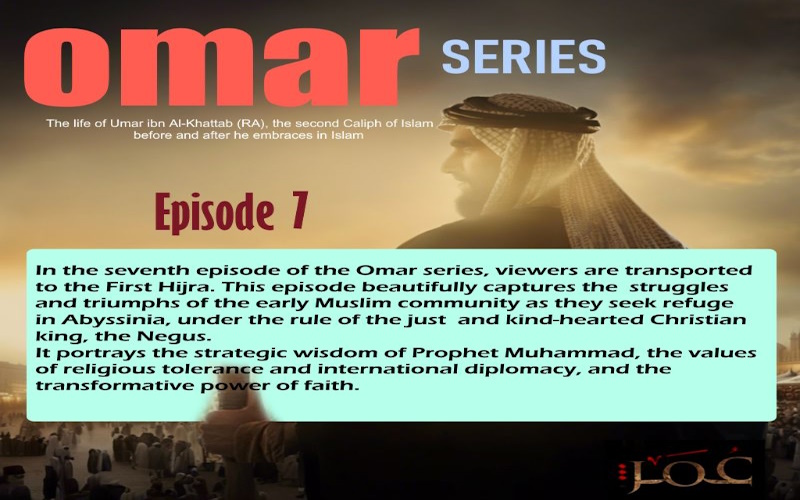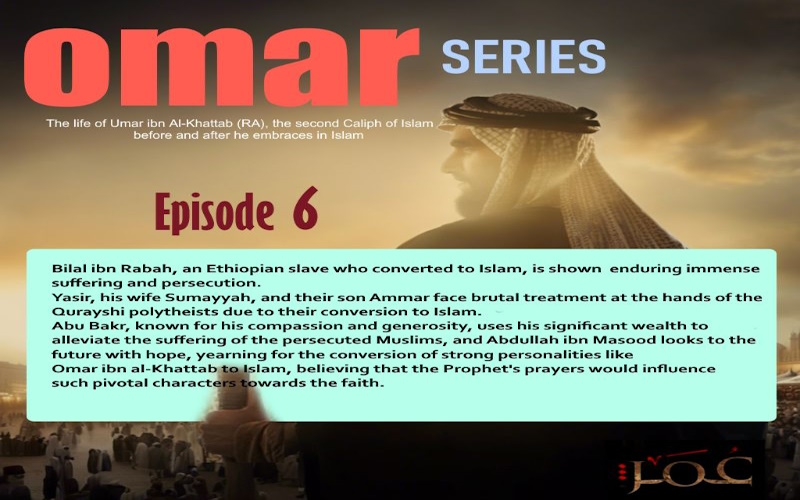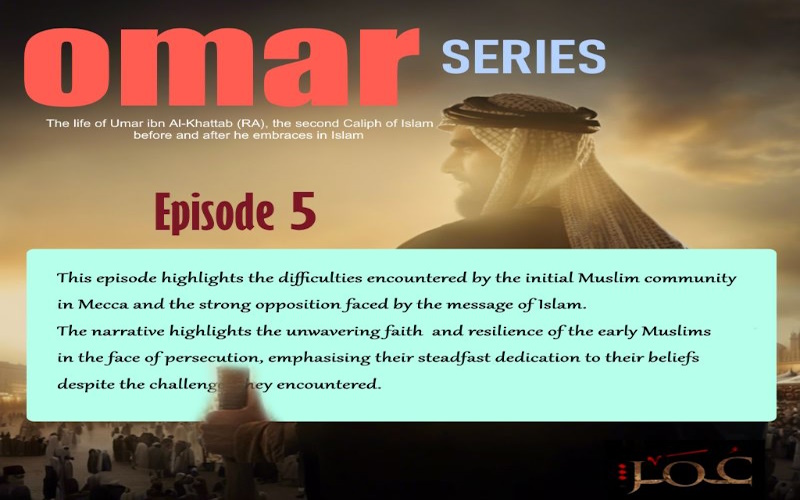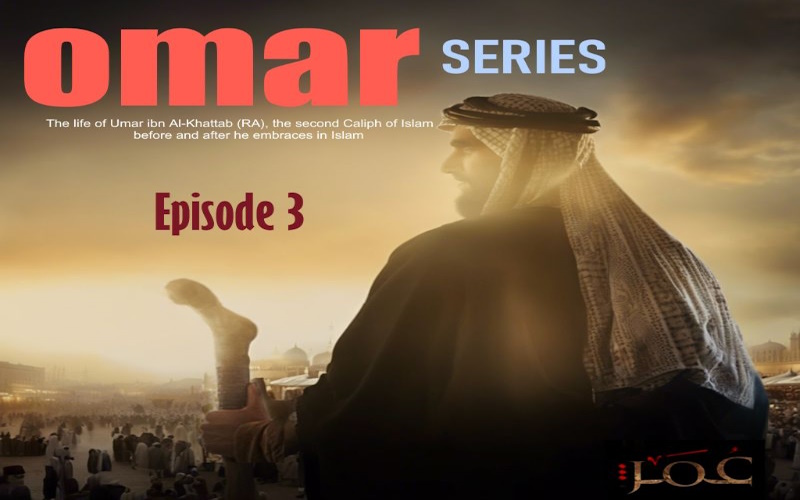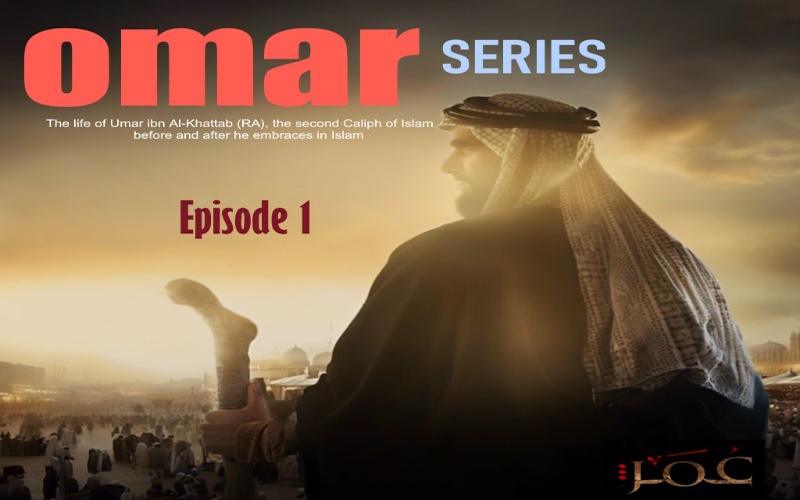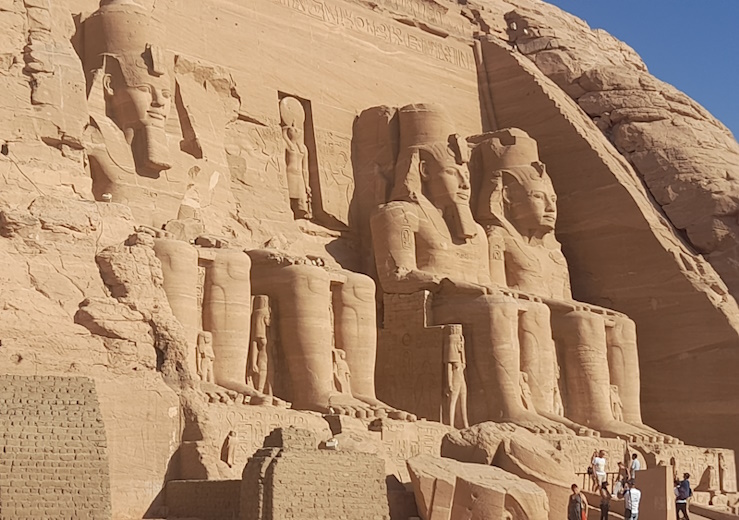Blogs
Home Blogs
The Turning Tides of Early Islam: Key Events from the Omar series Episode 8
In the tumultuous early days of Islam, the conversions of Hamza and Umar stood as beacons of hope amidst persecution. Their embrace of the faith emboldened the Muslim community to pray openly at the Kaaba, marking a pivotal moment of defiance against Quraysh oppression and inspiring the return of some Muslims from Abyssinia.
Inspirational Leadership and Faith: Analyzing the First Hijra in Omar Series Episode 7
In the seventh episode of the Omar series, viewers are transported to a critical moment in Islamic history - the First Hijra. This episode beautifully captures the struggles and triumphs of the early Muslim community as they seek refuge in Abyssinia, under the rule of the just and kind-hearted Christian king, the Negus. Through gripping storytelling, it portrays the strategic wisdom of Prophet Muhammad, the values of religious tolerance and international diplomacy, and the transformative power of faith. This episode serves as a compelling depiction of historical events that continue to inspire and offer valuable lessons for Muslims today.
Steadfast in Faith: The Resilience of Bilal and the Ultimate sacrifice from the family...
The sixth episode of the "Omar" series, which is a historical Arab television drama, delves into the severe tribulations faced by the early Muslims in Mecca due to their faith. Bilal ibn Rabah, an Ethiopian slave who converted to Islam, is shown enduring immense suffering and persecution. His steadfastness becomes a cornerstone of hope and resilience for the Muslim community.
Yasir, his wife Sumayyah, and their son Ammar are depicted as models of sacrifice. They face brutal treatment at the hands of the Qurayshi polytheists due to their conversion to Islam. Their story is marked by extraordinary suffering, with Sumayyah being the first martyr of Islam, followed by Yasir, highlighting the extreme sacrifices made by the early adherents to the faith.
The Strategic Wisdom and Compassionate Generosity of Early Islamic Figures. 5th Episode
This episode highlights the difficulties encountered by the initial Muslim community in Mecca and the strong opposition faced by the message of Islam. The narrative highlights the unwavering faith and resilience of the early Muslims in the face of persecution, emphasising their steadfast dedication to their beliefs despite the challenges they encountered.
The Struggle for Truth in Makkah: A Detailed Analysis of the Omar Series Episode...
In the fourth episode of the "Omar Series," we witness the Quraysh's struggle to reconcile their respect for Muhammad's integrity with their campaign to discredit his prophetic message. Sohail, a Quraysh elder, grapples with his son Abdullah's quest for truth over tribal loyalty. The episode poignantly depicts Islam's call for justice and equality, challenging the status quo of Makkah society. Through personal conflicts and societal tensions, the narrative underscores the moral dichotomy between truth and falsehood as the early Muslim community steadfastly upholds their faith amidst persecution.
A Historical Insight into Episode 3 of the “Omar Series”
In the shadowed corridors of Mecca, the Quraysh elite confront the unsettling rise of Islam. Abu Jahl's anger resonates in Darul Nadwa, while Utbah proposes a debate with Prophet Muhammad. 'Umar ibn Al-Khattab grapples with his opposition to the new faith, and Abu Talib stands firm against the demands to silence his nephew. This episode dramatizes the early struggles faced by the Prophet and his followers, weaving a narrative of conviction and tribal intrigue during the dawn of Islam.
The first Episode of “Omar”: an intricate portrait of early Islamic history
The article provides a detailed overview of the first episode of the series "Omar," which chronicles the life of Caliph Omar ibn Khattab, a revered figure in Islamic history.
The article further highlights Omar's growing interest in trade, his unwavering commitment to honesty, and the complex social dynamics of Mecca.
“Why Did the Camel Stop Outside Abu Ayyub Ansari’s House? The Remarkable Story of...
King Tubba, a Yemeni king who embraced Islam a thousand years before the birth of the Prophet Muhammad (peace be upon him). King Tubba's journey from a conqueror with hostile intentions to a devoted follower of the Prophet reveals a profound connection between Yemen, the Ka'bah, and the blessed city of Madinah. In this blog, we will delve into the intriguing story of King Tubba and explore why the camel stopped outside Abu Ayyub Ansari's house.
Rising Hajj costs: A Global concern
The increasing cost of the Hajj pilgrimage is a worry for Muslims worldwide. Economic factors like currency devaluation and inflation have made this sacred...
Exploring the Magnificent Abu Simbel Temple: A Journey Through Time
Introduction
In August 2023, we embarked on an unforgettable adventure through Egypt, leading us to the breathtaking Abu Simbel Temple. This ancient marvel, linked to...



